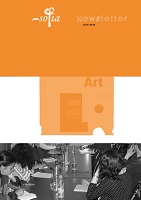
CAS Newsletter 2015/2016
Articles, pictures and interviews can be reprinted only with the consent of Centre for Advanced Study Sofia (CAS - Sofia). Any citations should be duly acknowledged.
More...We kindly inform you that, as long as the subject affiliation of our 300.000+ articles is in progress, you might get unsufficient or no results on your third level or second level search. In this case, please broaden your search criteria.

Articles, pictures and interviews can be reprinted only with the consent of Centre for Advanced Study Sofia (CAS - Sofia). Any citations should be duly acknowledged.
More...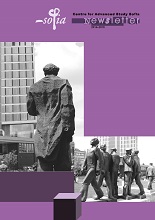
Articles, pictures and interviews can be reprinted only with the consent of Centre for Advanced Study Sofia (CAS - Sofia). Any citations should be duly acknowledged.
More...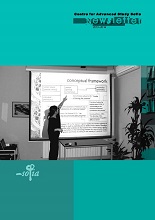
Articles, pictures and interviews can be reprinted only with the consent of Centre for Advanced Study Sofia (CAS - Sofia). Any citations should be duly acknowledged.
More...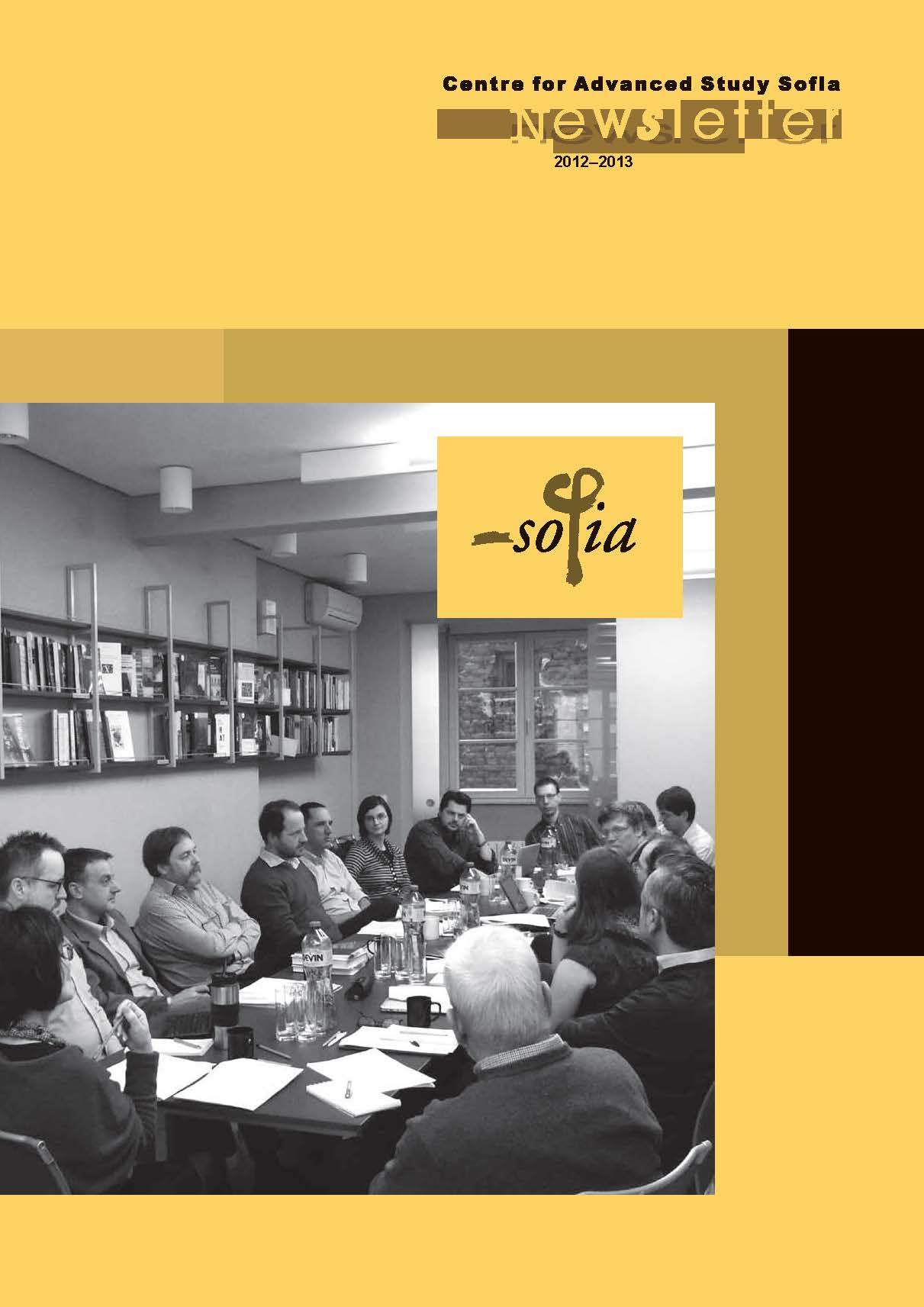
Articles, pictures and interviews can be reprinted only with the consent of Centre for Advanced Study Sofia (CAS - Sofia). Any citations should be duly acknowledged.
More...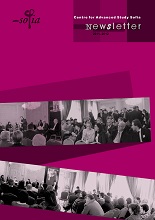
Articles, pictures and interviews can be reprinted only with the consent of Centre for Advanced Study Sofia (CAS - Sofia). Any citations should be duly acknowledged.
More...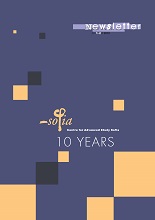
Articles, pictures and interviews can be reprinted only with the consent of Centre for Advanced Study Sofia (CAS - Sofia). Any citations should be duly acknowledged.
More...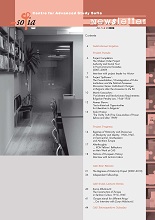
Articles, pictures and interviews can be reprinted only with the consent of Centre for Advanced Study Sofia (CAS - Sofia). Any citations should be duly acknowledged.
More...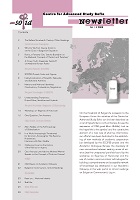
Articles, pictures and interviews can be reprinted only with the consent of Centre for Advanced Study Sofia (CAS - Sofia). Any citations should be duly acknowledged.
More...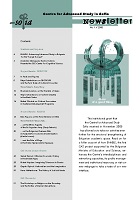
Articles, pictures and interviews can be reprinted only with the consent of Centre for Advanced Study Sofia (CAS - Sofia). Any citations should be duly acknowledged.
More...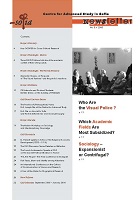
Articles, pictures and interviews can be reprinted only with the consent of Centre for Advanced Study Sofia (CAS - Sofia). Any citations should be duly acknowledged.
More...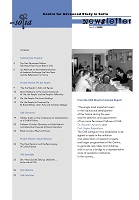
Articles, pictures and interviews can be reprinted only with the consent of Centre for Advanced Study Sofia (CAS - Sofia). Any citations should be duly acknowledged.
More...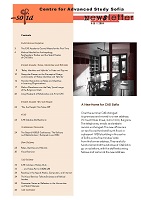
Articles, pictures and interviews can be reprinted only with the consent of Centre for Advanced Study Sofia (CAS - Sofia). Any citations should be duly acknowledged.
More...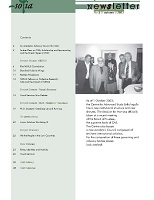
Articles, pictures and interviews can be reprinted only with the consent of Centre for Advanced Study Sofia (CAS - Sofia). Any citations should be duly acknowledged.
More...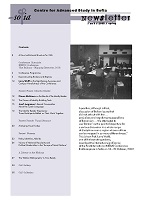
Articles, pictures and interviews can be reprinted only with the consent of Centre for Advanced Study Sofia (CAS - Sofia). Any citations should be duly acknowledged.
More...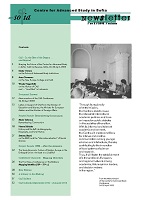
Articles, pictures and interviews can be reprinted only with the consent of Centre for Advanced Study Sofia (CAS - Sofia). Any citations should be duly acknowledged.
More...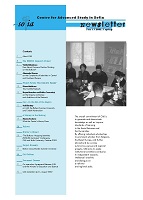
Articles, pictures and interviews can be reprinted only with the consent of Centre for Advanced Study Sofia (CAS - Sofia). Any citations should be duly acknowledged.
More...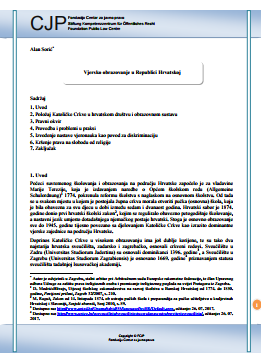
This paper investigates issues relating to religious education in public school system in the Republic of Croatia. It focuses mainly on Catholic Catechism in public school, due to the fact that population of Croatia is predominantly Catholic and the fact that Croatia has entered into international accords with Holy See. Paper particularly analyzes and describes instances of discrimination of nonreligious school children and criticizes the fact that no alternative education is provided to such children, at least in the first three grades of elementary schools. Finally, the paper offers certain recommendations to mitigate existing problems and to eliminate discrimination from public school system of the Republic of Croatia.
More...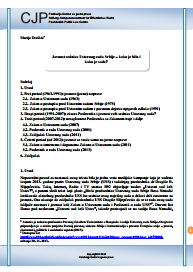
Pitanje javnosti rada Ustavnog suda, koje je izazvalo tako veliku polemiku kako među samim sudijama Ustavnog suda tako i u profesionalnim krugovima i medijskoj javnosti, verovatno da nije zasluživalo veliki prostor i vreme koje je potrošeno da bi se razjasnilo o čemu je zapravo reč. Ustavna garancija javnosti rasprave pred Ustavnim sudom, uz opšteprihvaćene standarde za isključenje javnosti (koji se odnose na zaštitu interesa nacionalne bezbednosti, javnog reda i morala u demokratskom društvu, kao i zaštitu interesa maloletnika ili privatnosti učesnika u postupku), odnosila se oduvek samo na javno raspravljanje učesnika u postupku pred Ustavnim sudom. Iznenada, neoprezno i bez dovoljne svesti o posledicama, Poslovnik o radu Ustavnog suda iz 1991. godine neočekivano je javnost uveo i na sve redovne sednice Ustavnog suda, na kojima se nije odvijala javna rasprava, već se na njima obavljalo većanje i glasanje sudija o predloženoj odluci. Moguće je pretpostaviti da se to dogodilo usled nedovoljnog razlikovanja faze većanja od ostalih faza u postupku odlučivanja Ustavnog suda u predmetima klasične ustavnosudske nadležnosti u normativnoj kontroli. Nažalost, iako je takva nezakonita praksa trajala godinama, neprirodnost slike „direktnog prenosa svega onog što se događalo na sednici Suda“ ili sudije koji učestvuje u većanju i glasanju, a svoja gledišta iznosi pred predstavnicima medija i svoja uverenja brani uz nadzor televizijskih kamera, nije time bila manje upečatljiva.
More...
Isprepletenost i podudarnost etničke i religijske pripadnosti u BiH direktno se odražava na položaj religijskih manjina u BiH. Zbog takve karakteristične strukture, gdje se svi napori usmjeravaju ka pružanju jednakog tretmana trima većinskim religijama, prava religijskih manjina ostaju zapostavljena. Iako su na snazi mnogi pravni propisi koji garantiraju jednak položaj svih religijskih zajednica, religijske manjine se svakodnevno stavljaju u obespravljen položaj. To je na primjer vidljivo iz činjenica da Ustav Republike Srpske navodi Srpsku pravoslavnu crkvu kao crkvu srpskog naroda i drugih naroda pravoslavne vjere, te da religijske manjine nisu zastupljene u Međureligijskom vijeću BiH. Pored toga, obespravljenost religijskih manjina dolazi do izražaja i u koncepciji religijskog obrazovanja u školama, gdje u većini slučajeva učenici nisu u mogućnosti da pohađaju religijsko obrazovanje po svom izboru, nego zbog konretnih okolnosti moraju konzumirati vjersku pouku većinske religije. Problemi sa legislativom u BiH, kao što su neharmoniziranost te siromašna zakonska zaštita od diskriminacije, samo dodatno doprinose marginalizaciji religijskih manjina u društvu. Zbog pojedinih Ustavnih odredbi koje omogućuju povlašteni položaj određenoj religiji i uske povezanosti religije i politike, BiH sve više postaje polusekularna država, u kojoj se za vođstvo takmiče tri većinske religije. Iz svega navedenog slijedi da bi vlasti BiH trebale poduzeti različite mjere kako bi se religijske manjine zaštitile od diskriminacije. Prvi korak bi predstavljalo ukidanje odredbe Ustava Republike Srpske, kojom se daje povlašteni položaj Srpskoj pravoslavnoj crkvi. Dalje, religijske manjine treba da budu zastupljene u organima Međureligijskog vijeća u BiH. Aktivnim djelovanjem Međureligijskog vijeća bi se mogao znatno poboljšati položaj religijskih manjina u društvu. Pored toga, vlasti BiH bi trebale poduzeti korake kako bi harmonizirale i ojačale zakone vezane za zaštitu od krivičnog djela poticanja na mržnju. Iako krivična djela počinjena iz mržnje prema religijskim manjinama nisu česta pojava u BiH, ipak stručnjaci za ljudska prava ukazuju na njihovo postojanje. Stoga bi harmonizacija zakonodavstva znatno olakšala sudijama i tužiocima sankcioniranje krivičnog djela poticanje na mržnju, što bi opt doprinijelo ujednačavanju sudske prakse, a time i efektivnijoj zaštiti i prevenciji od sličnih krivičnih djela. Na posljetku, jedna od ključnih stvari za uklanjanje diskriminacije religijskih manjina u BiH jeste izmjena dosadašnjeg načina religijskog obrazovanja u školama. Umjesto vjerske pouke o samo jednoj religiji, učenici treba da se educiraju o različitim kulturama i religijama. Kao što je predhodno navedeno, zbog okolnosti, škole su ograničene u pogledu pružanja vrste religijskog obrazovanja, tako da bi ovakva opcija bila prikladna za učenike svih vjeroispovijesti, kod kojih bi se ujedno i razvijala svijest o važnosti tolerancije i ravnopravnosti u društvu.
More...
The author discusses the issue of equality and inequality in achieving rights from pension and disability insurance in Bosnia and Herzegovina through the analysis of the set conditions related to insurance and age limits regarding the rights to old-age pension in accordance with the general provisions on the pension and disability insurance, and special regulations on the retirement in both entities. A special problem of inequality occur due to differences in incomes of pensioners, beneficiaries of the entity’s pension found institutions and disability insurance, for the persons who were granted retirement before the war, with a single insurance found institution and the single economic space. This is an open problem that burdens the insurance institution in the entities. In the conclusions and recommendations, the author suggests modalities to resolve the issues of inequality by strengthening the role of state government levels.
More...